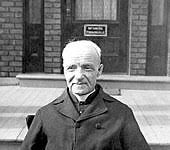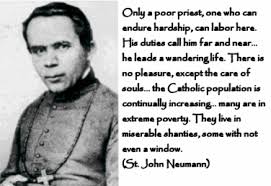On 11 February 2013, Pope Benedict XVI announced his resignation from the papacy. The full text is reprinted here.
Dear Brothers,
I have convoked you to this Consistory, not only for the three canonizations, but also to communicate to you a decision of great importance for the life of the Church. After having repeatedly examined my conscience before God, I have come to the certainty that my strengths, due to an advanced age, are no longer suited to an adequate exercise of the Petrine ministry. I am well aware that this ministry, due to its essential spiritual nature, must be carried out not only with words and deeds, but no less with prayer and suffering. However, in today’s world, subject to so many rapid changes and shaken by questions of deep relevance for the life of faith, in order to govern the barque of Saint Peter and proclaim the Gospel, both strength of mind and body are necessary, strength which in the last few months, has deteriorated in me to the extent that I have had to recognize my incapacity to adequately fulfill the ministry entrusted to me. For this reason, and well aware of the seriousness of this act, with full freedom I declare that I renounce the ministry of Bishop of Rome, Successor of Saint Peter, entrusted to me by the Cardinals on 19 April 2005, in such a way, that as from 28 February 2013, at 20:00 hours, the See of Rome, the See of Saint Peter, will be vacant and a Conclave to elect the new Supreme Pontiff will have to be convoked by those whose competence it is. Dear Brothers, I thank you most sincerely for all the love and work with which you have supported me in my ministry and I ask pardon for all my defects. And now, let us entrust the Holy Church to the care of Our Supreme Pastor, Our Lord Jesus Christ, and implore his holy Mother Mary, so that she may assist the Cardinal Fathers with her maternal solicitude, in electing a new Supreme Pontiff. With regard to myself, I wish to also devotedly serve the Holy Church of God in the future through a life dedicated to prayer.
On the same day, Pope Benedict addressed the sick.
I would like to propose for your reflection the exemplary figure of the Good Samaritan (cf. Lk 10:25-37). The Gospel parable recounted by Saint Luke is part of a series of scenes and events taken from daily life by which Jesus helps us to understand the deep love of God for every human being, especially those afflicted by sickness or pain. With the concluding words of the parable of the Good Samaritan, “Go and do likewise” (Lk 10:37), the Lord also indicates the attitude that each of his disciples should have towards others, especially those in need. We need to draw from the infinite love of God, through an intense relationship with him in prayer, the strength to live day by day with concrete concern, like that of the Good Samaritan, for those suffering in body and spirit who ask for our help, whether or not we know them and however poor they may be. This is true, not only for pastoral or health care workers, but for everyone, even for the sick themselves, who can experience this condition from a perspective of faith: “It is not by sidestepping or fleeing from suffering that we are healed, but rather by our capacity for accepting it, maturing through it and finding meaning through union with Christ, who suffered with infinite love” (Spe Salvi, 37).
Various Fathers of the Church saw Jesus himself in the Good Samaritan; and in the man who fell among thieves they saw Adam, our very humanity wounded and disoriented on account of its sins … Jesus is the Son of God, the one who makes present the Father’s love, a love which is faithful, eternal and without boundaries. But Jesus is also the one who sheds the garment of his divinity, who leaves his divine condition to assume the likeness of men (cf. Phil 2:6-8), drawing near to human suffering, even to the point of descending into hell, as we recite in the Creed, in order to bring hope and light. He does not jealously guard his equality with God (cf. Phil 2:6) but, filled with compassion, he looks into the abyss of human suffering so as to pour out the oil of consolation and the wine of hope.
In the Gospel the Blessed Virgin Mary stands out as one who follows her suffering Son to the supreme sacrifice on Golgotha. She does not lose hope in God’s victory over evil, pain and death, and she knows how to accept in one embrace of faith and love, the Son of God who was born in the stable of Bethlehem and died on the Cross. Her steadfast trust in the power of God was illuminated by Christ’s resurrection, which offers hope to the suffering and renews the certainty of the Lord’s closeness and consolation.
A selection of the Message of His Holiness Pope Benedict XVI for the twenty-first World Day of the Sick
11 February 2013
Reprinted with permission from Libreria Editrice Vaticana.









